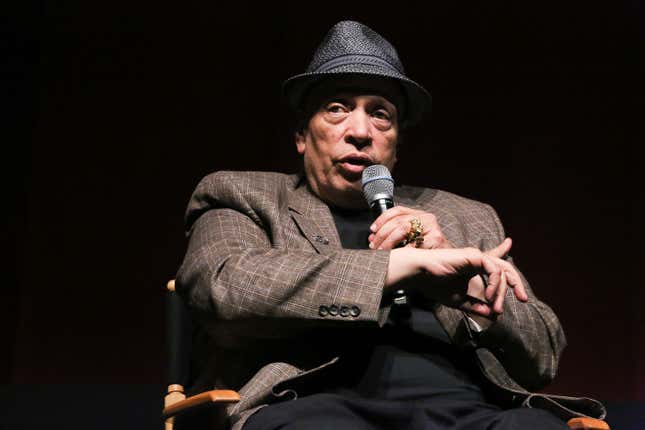
Maybe some people prefer the n-word only to be used in hip-hop.
Walter Mosley, the legendary author of best-selling crime fiction classics such as Devil in a Blue Dress and Always Outnumbered, Always Outgunned, uses the word in his books and in real life.
But that didn’t cut it at the Santa Monica, Calif.-based production offices of the CBS All Access sci-fi series Star Trek: Discovery.
In an opinion piece in the New York Times, the beloved novelist minced no words about his short-lived, racially charged stint as a writer on the heavily marketed streaming series, revealing how he was “chastised” by human resources staffers for using the n-word while on the job.
The 67-year old Los Angeles native wrote: “Earlier this year, I had just finished with the Snowfall writers’ room for the season when I took a similar job on a different show at a different network. I’d been in the new room for a few weeks when I got the call from human resources. A pleasant-sounding young man said, ‘Mr. Mosley, it has been reported that you used the n-word in the writers’ room.’ I replied, ‘I am the n-word in the writers’ room.’”
Saywhatnow?
Mosley, who is unapologetically black (check him out in Timothy Greenfield-Sanders’ recent Toni Morrison documentary The Pieces I Am) but also identifies as Jewish, continued telling the story of how one of his counterparts blew the whistle on him for using the offensive racial slur (and term of endearment for some) while recalling a conversation with a proud member of the LAPD who shared his prejudiced practices while on the beat.
“Someone in the room, I have no idea who, called H.R. and said that my use of the word made them uncomfortable, and the H.R. representative called to inform me that such language was unacceptable to my employers. I couldn’t use that word in common parlance, even to express an experience I lived through.”
The award-winning author didn’t reveal the name of the TV series the incident occurred but sources told the Hollywood Reporter it was Star Trek: Discovery, which reportedly has a dodgy history of abusive language within its writer’s room.
“There I was being chastised for criticizing the word that oppressed me and mine for centuries. As far as I know, the word is in the dictionary,” he wrote about the interaction. “As far as I know the Constitution and the Declaration of Independence assure me of both the freedom of speech and the pursuit of happiness.”
Mosley ultimately decided to leave the show even though he wasn’t threatened with termination. “My answer to H.R. was to resign and move on. I was in a writers’ room trying to be creative while at the same time being surveilled by unknown critics who would snitch on me to a disembodied voice over the phone,” he wrote. “My every word would be scrutinized. Sooner or later I’d be fired or worse—silenced.”
CBS TV Studios responded to Mosley’s op-ed with the statement: “We have the greatest admiration for Mr. Mosley’s writing talents and were excited to have him join Star Trek: Discovery. While we cannot comment on the specifics of confidential employee matters, we are committed to supporting a workplace where employees feel free to express concerns and where they feel comfortable performing their best work. We wish Mr. Mosley much continued success.”
So what’s the take away in all of this?
Maybe that no n-words are allowed in the writer’s room—especially if they use the n-word for a show about the future and outer space, frontlined by…dare I say it…a black woman?
THR noted that even though it is on its third showrunner for its third season, Star Trek: Discovery writer’s room is quite diverse, including three African Americans, two Asian Americans, a Native American and a Latinx woman.

